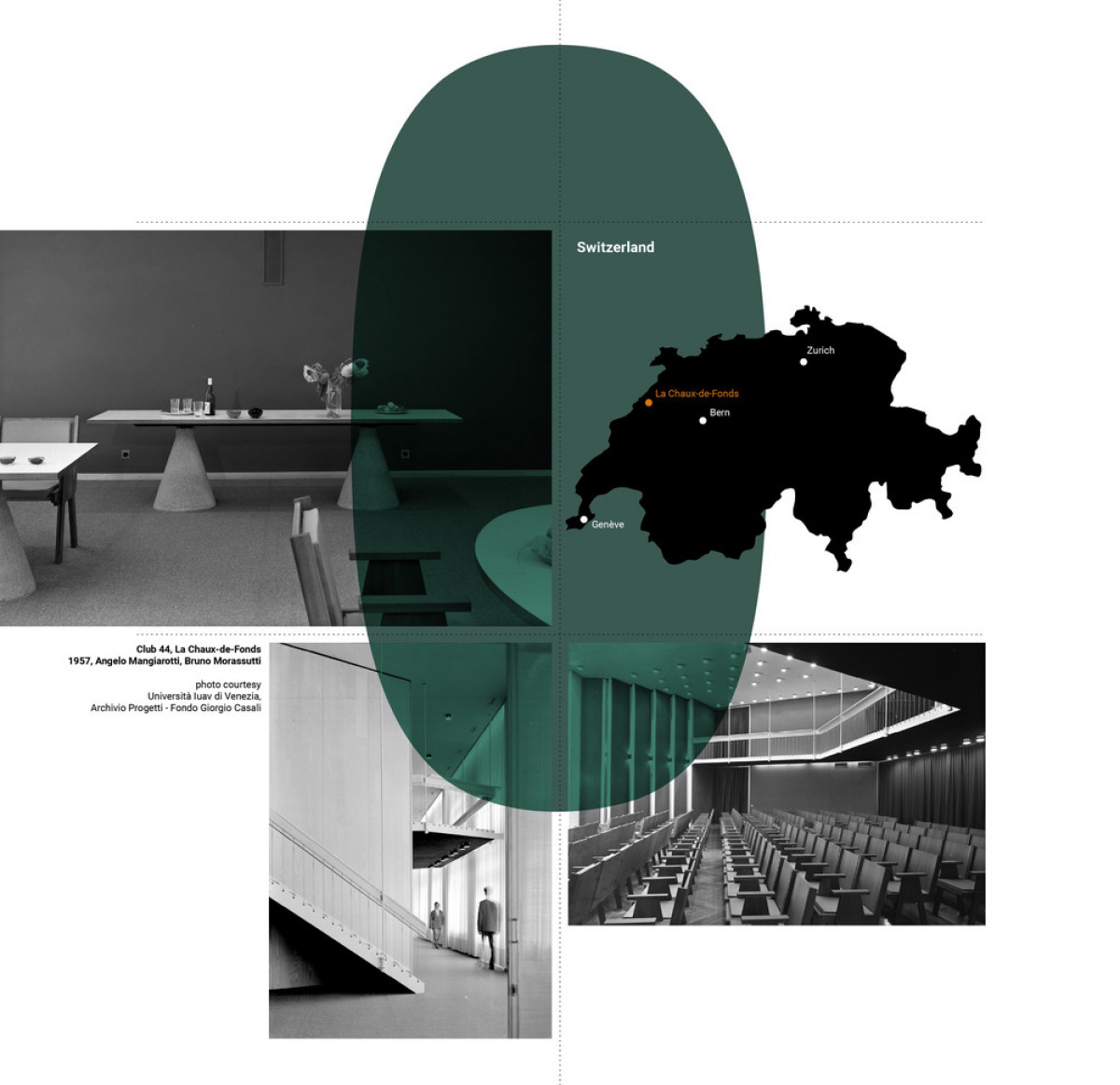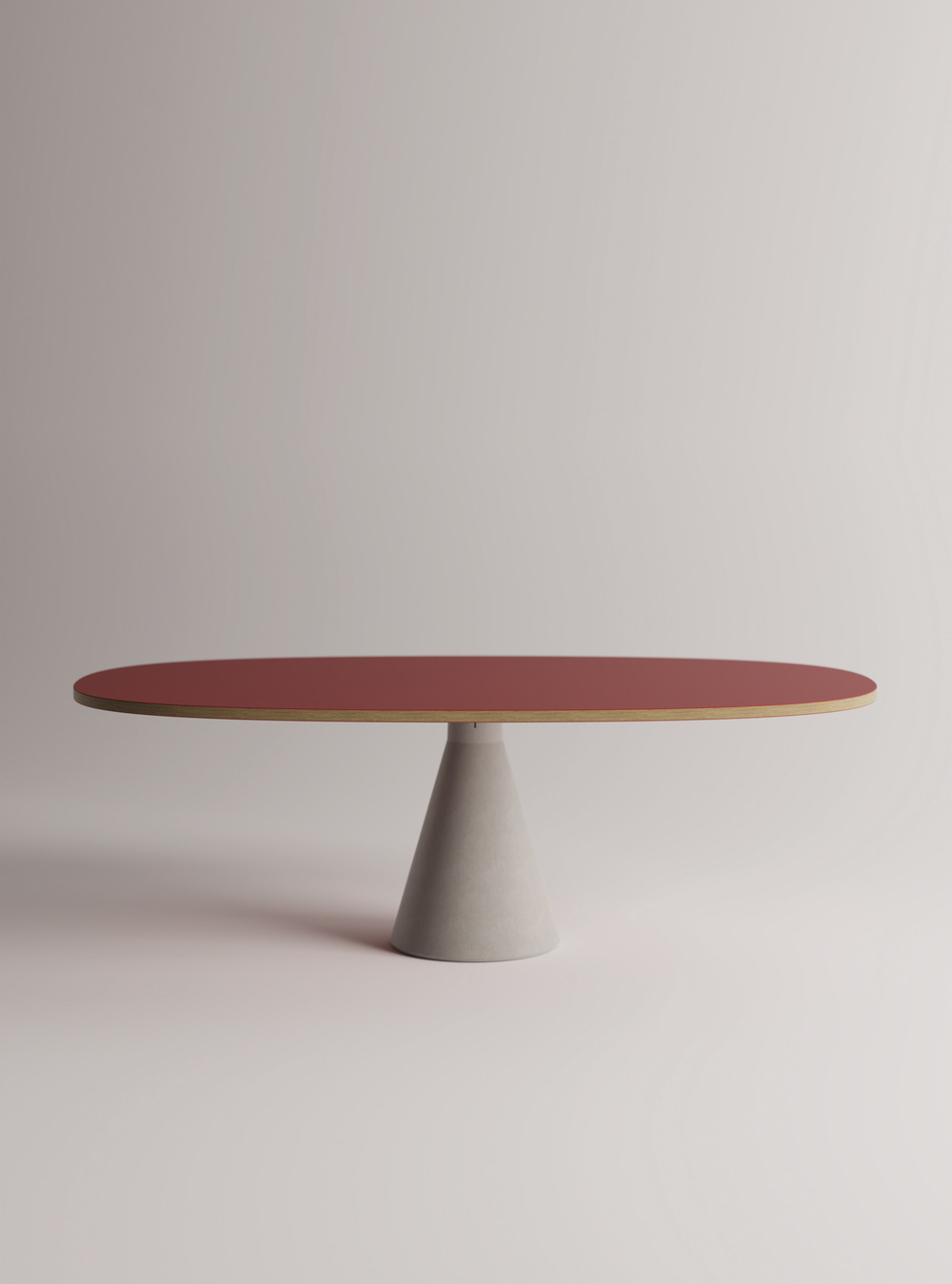31 Jan 2023

This striking architectural piece of furniture, designed by the Maestro with Bruno Morassuti as a unique piece for the Club 44 in La Chaux-de-Fonds, Switzerland, is now manufactured by Agapecasa for the first time. Agapecasa, the brand created by Agape to reissue the original designs of Angelo Mangiarotti, introduces the Club 44 table to the collection.
The table was custom-made in 1957 as part of a total renovation of the Club 44 cultural centre in the watchmaking capital of La Chaux-de-Fonds in Switzerland. Curated by Angelo Mangiarotti and Bruno Morassutti, the redesign of the centre focused on an interplay of intriguing perspectives and geometries.
Also Read: 7 Simple steps to Declutter your Work Space

Other furnishings were also designed for the occasion, including an interlocking model of auditorium seats, today part of Agapecasa’s Mangiarotti Collection in a single version. The Club 44 table is a modern yet timeless piece, a vivid evocation of the culture of good design embodied by one of the most intriguing and multifaceted 20th-century Italian masters of architecture and design. Today, it is being put into production for the first time.
Also Read | Interior stylist Bhawana Bhatnagar on smart lockers at residential spaces
Until now, only a few of these tables existed, specifically made for the bar, foyer and stage of the Swiss club auditorium and are still visible in the cultural centre. Adapting it for mass production as part of the Agapecasa collection required careful experimentation with materials and construction tools, to preserve its original character.
Modularity and Poetry
Its defining characteristics are its modularity and strongly architectural three-piece design, which gives each element space to express its poetic character: the truncated conical supports, originally in beola stone and now in concrete, the graphical surface of the top, and the elegant, technical cross T-section steel frame cut at 45° that both unites and distances them.
Also Read: 7 Simple steps to Declutter your Work Space
The table builds a deep connection with the space, recalling several elements of Club 44 by echoing the metal used in the structure of the auditorium’s balconies. The design was a way of being for Angelo Mangiarotti, who considered objects, architecture, and works of art to all be parts of a dynamic and open unified whole.
Forms and Dimensions
There is an elegance and sculptural beauty to the dialogue between the material solidity of the base and the simplicity of the top in its numerous variations and finishes, creating a diverse family united around the central feature of the base. The top is available in four shapes - square, elliptical, round, and rectangular - reaching dimensions of up to 100x300cm in the version with two supports.
Also Read | Shiro Kuramata’s Samba-M shines again with Ambientec at the supersalone in Milan
Materials and Finishes
Any material must be thoroughly explored, discovering its strengths and weaknesses, to build a design based on its qualities. The Club 44 table is characterized by a short list of carefully chosen materials: concrete for the base, steel for the cross-shaped frame, and glass and wood for the top.
In contrast, there are numerous finishes available for the 30mm birch plywood top with exposed edges, with three shades of Slovenian oak or seven variants of Forbo natural linoleum.
Also Read: Easy Guide To Choose A Color Palette For Your Space